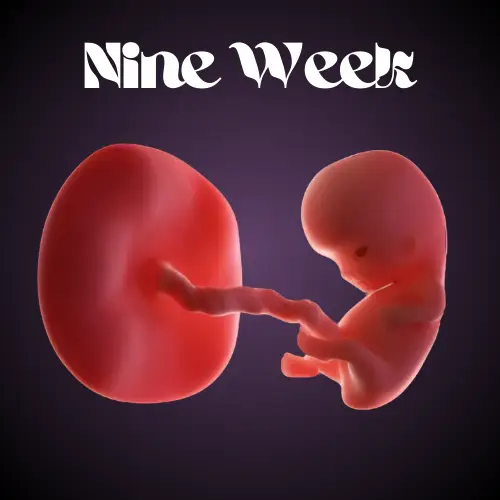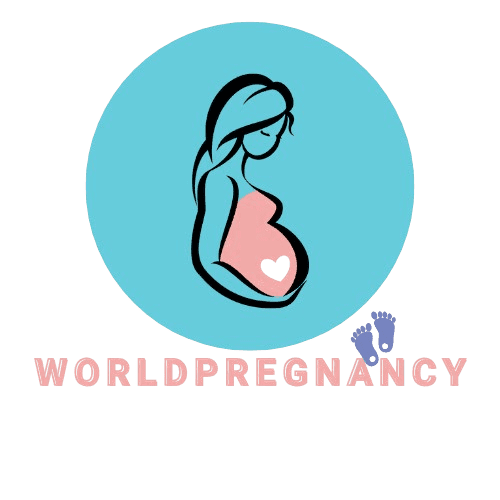Congratulations on reaching nine weeks of pregnancy! This is an exciting milestone where your baby is rapidly developing and your body is undergoing significant changes. Whether you’re a first-time mom or experienced in pregnancy, this guide will walk you through everything you need to know about fetal development at 9 weeks, common symptoms, and essential care tips.
By this week, your baby is about the size of a strawberry (22mm long), and their tiny facial features are forming. You might still be dealing with morning sickness, fatigue, or mood swings—but don’t worry, we’ll cover how to manage these symptoms naturally.
Let’s dive into this week-by-week pregnancy guide, backed by medical expertise and real-life experiences, to help you navigate this beautiful journey with confidence.

Fetal Development at 9 Weeks: What’s Happening to Your Baby?
At nine weeks pregnant, your baby (now called a fetus) is growing at an incredible pace. Here’s what’s happening:
1. Baby’s Size & Growth
Length: ~22mm (size of a strawberry or grape)
Weight: ~2 grams
Key Development: The embryonic tail disappears, and the body straightens.
2. Facial Features Forming
Eyes: Pigmented and covered by tiny eyelids.
Mouth & Tongue: Taste buds begin developing.
Ears: Taking shape but not yet fully formed.
3. Limb Development
Arms & Legs: Elbows and knees are visible.
Fingers & Toes: Webbed ridges appear, soon separating into digits.
4. Internal Organs Progress
Heart: Fully formed and beating (~170 bpm).
Brain: Rapid neuron development.
Digestive System: Intestines start forming.
Reproductive Organs: Developing, but gender is not yet visible.
🔬 Did You Know?
According to the American Pregnancy Association, by week 9, the baby’s critical organs have started functioning, making this a crucial phase for healthy development.
Maternal Changes: What to Expect at 9 Weeks Pregnant
Your body is working hard to support your growing baby. Here are common symptoms you might experience:
1. Morning Sickness & Nausea
Why? Due to rising hCG and progesterone hormones.
Relief Tips:
Eat small, frequent meals.
Try ginger tea or vitamin B6 (after doctor’s advice).
2. Fatigue & Sleepiness
Cause: Increased metabolic demand.
Solution: Rest when possible and stay hydrated.
3. Breast Tenderness
Reason: Hormonal changes preparing for breastfeeding.
Comfort Tip: Wear a supportive maternity bra.
4. Frequent Urination
Why? The expanding uterus presses on the bladder.
Management: Avoid caffeine before bedtime.
5. Mood Swings
Cause: Hormonal fluctuations.
Coping Strategy: Light exercise (prenatal yoga) and meditation.
⚠️ When to Seek Help?
If you experience severe vomiting (hyperemesis gravidarum), bleeding, or sharp pain, consult your doctor immediately.
Real-Life Story: A Mom’s Experience at 9 Weeks
“At nine weeks, I felt exhausted all the time. My doctor assured me it was normal and suggested iron-rich foods. The first ultrasound was magical—seeing my baby’s tiny heartbeat made every nausea episode worth it!”
— Sarah, First-Time Mom
Pregnancy Care Tips for Week 9
✅ Do’s
✔ Eat Nutrient-Rich Foods (folate, iron, calcium).
✔ Stay Hydrated (2-3L water/day).
✔ Start Prenatal Vitamins (folic acid is crucial).
✔ Gentle Exercise (walking, swimming).
❌ Don’ts
✖ Avoid Raw/Undercooked Food (risk of listeria).
✖ Limit Caffeine (<200mg/day).
✖ No Alcohol/Smoking (harmful to fetal development).
FAQ: Your 9-Week Pregnancy Questions Answered
1. Can I feel my baby move at 9 weeks?
No, fetal movements start around 18-22 weeks.
2. When is the first ultrasound done?
Typically between 8-12 weeks to confirm pregnancy and check development.
3. Is spotting normal at 9 weeks?
Light spotting can happen, but heavy bleeding requires medical attention.
4. Can I travel at 9 weeks pregnant?
Yes, but avoid long flights and consult your doctor.
5. What if I have no symptoms at 9 weeks?
Some women have mild symptoms—it doesn’t mean anything’s wrong.
Conclusion
The ninth week of pregnancy is a transformative phase for both mother and baby. While symptoms like nausea and fatigue can be challenging, remember that they signal healthy progress. Focus on balanced nutrition, hydration, and rest, and don’t hesitate to seek medical advice if needed.
Every pregnancy is unique—trust your body, stay informed, and enjoy this miraculous journey!
📌 Next Week? Learn about Week 10—when your baby officially becomes a fetus!
